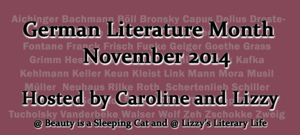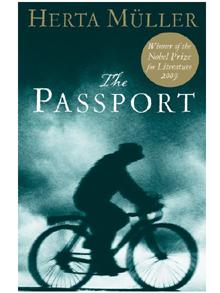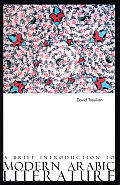Verschiedene Handke-Adepten (darunter auch einige, die ein Eigeninteresse daran haben, etwa weil sie ihre akademische Laufbahn auf dem Werk dieses Autors aufgebaut haben oder Bücher über ihn geschrieben haben) bezeichneten in den letzten Tagen ihre Feinde – das Wort „Gegner“ passt hier wegen des extrem militanten und menschenverachtenden Habitus nicht – mit recht entlarvenden Ausdrücken. Entlarvend nicht für die so Bezeichneten, sondern für die, die ein solches Vokabular benutzen.
Als “windschiefe Gestalten” und “karge Lemuren” – das sind nur zwei Beispiele, man könnte leicht noch viel mehr in diesem Ton finden – werden in der laufenden Diskussion um Peter Handkes Nobelpreiswürdigkeit mittlerweile diejenigen tituliert, die die Frage stellen, ob es wirklich eine gute Idee war, ausgerechnet diesen Schriftsteller mit einem Preis auszuzeichnen, der an einen Autor oder eine Autorin gehen soll, deren Werk in idealistischer Weise herausragend sein soll.
Eine solche hasserfüllte Sprache ist entwürdigend und zutiefst unmenschlich. Wer, wie Handke oder seine Jünger so schnell den guten Ton vermissen lässt – Handke schlägt bei Kritikern ja wohl auch gelegentlich gerne mal mit der Faust zu oder bezeichnet Kritikerinnen als „Westhuren“ -, der sollte nicht arg so empfindlich sein, wenn Menschen Handkes Werk zitieren oder nochmal detailliert Revue passieren lassen, was der Autor gesagt, geschrieben und getan hat.
Niemand von Handkes Kritikern hat gefordert, dass seine Bücher nicht mehr gelesen oder verlegt werden sollen. Niemand von Handkes Kritikern hat gefordert, dass er ausgebürgert werden muss. In der peinlichen Solidaritätsadresse, die jetzt veröffentlicht wurde, wird so getan, als habe Handke seine Existenz aufs Spiel gesetzt, als sei er ein Dissident usw. usw. Davon ist nichts, aber auch gar nichts wahr. Er publiziert, wird gelesen (wahrscheinlich erheblich mehr als ohne seine provokativen Jugoslawien-Texte und die ganze Diskussion darüber), er bekommt Literaturpreis um Literaturpreis. Er ist gut im Geschäft, könnte man sagen. Er gewinnt neue(?) Freunde (Kubitschek & Co.).
Diejenigen, die im Gegensatz zu Peter Handke wirklich ihre Existenz aufs Spiel gesetzt haben, sind die, die Handkes Freunde von den Hügeln rund um Sarajevo über viele Monate beschossen haben, diejenigen, die damit rechnen mussten, dass sie täglich, beim Überqueren einer Strasse in der belagerten Stadt, aus der sie nicht herauskonnten, von einem Scharfschützen ermordet werden. Aber laut Peter Handke war das alles berechtigt, da ja „nur“ Revanche. Oder es hat gar nicht stattgefunden. Oder er hat es nicht so gemeint, falls er es gesagt oder geschrieben haben sollte. Oder er kann sich nicht genau daran erinnern, so was gesagt zu haben. Oder er hat es zwar gesagt, hat es dann aber nicht autorisiert. Oder er hat sich „verhaspelt“ (ein Schlüsselwort für das Wirken von Peter Handke). Und eigentlich wollten diese Leute, die da gemordet haben, seine Freunde, nur Indianer spielen.
Für diejenigen, die es immer noch nicht verstanden haben: die Kritik an Peter Handke hat er sich verdient. Nicht, weil er „Medienkritik“ übte, wie das jetzt einige Baudrillard zitierende Zeitgenossen behaupten – „Lügenpresse“ zu sagen (und nichts anderes tut Handke), ist keine Medienkritik, es ist dumpfe Propaganda -, sondern weil er seit Jahrzehnten das völkisch-geschichtsrevisionistische Narrativ von Leuten, die buchstäblich Blut an den Händen haben, verbreitet, weil er absolut jede glaubhafte Empathie mit den Opfern der von Serben begangenen Verbrechen vermissen lässt, weil er Täter zu Opfern umlügt.
In diesem Zusammenhang mache ich einen bescheidenen Vorschlag hinsichtlich des Literaturnobelpreises 2020:
Der Schwedischen Akademie schlage ich vor, nächstes Jahr Paul Goma mit dem Literaturnobelpreis auszuzeichnen, der ebenfalls ein geschlossen völkisch-revisionistisches Weltbild hat. Und wenn Goma den rumänischen Holocaust als Rache an den jüdisch-bolschewistischen Kommissaren entschuldigt oder sogar rechtfertigt, Opferzahlen herunterrechnet und Täter-Opfer-Umkehr betreibt, folgt er dem gleichen Muster wie Handke. Am Ende waren die Mörder die armen Opfer und wenn sie was Schlechtes getan haben, muss man für die Armen doch Verständnis haben, es war ja allenfalls überzogene Notwehr oder Vergeltung, also eigentlich menschlich verständlich und irgendwie gerechtfertigt. Und dann die schlechte Presse – wie unfair, über diesen Genozid (war es denn einer, werden Gomas Verteidiger fragen) – so einseitig zu berichten. Dahinter steckt bestimmt eine amerikanische PR-Firma. Eine solche Auszeichnung an Goma ist wahrhaft „idealistisch“, wenn ich die Schwedische Akademie richtig verstanden habe. Und im übrigen: Holocaustrelativierung hin oder her – man muss doch Autor und Werk immer schön auseinanderhalten… Wer das dann kritisieren wird, ist “hasserfüllt”, eine “windschiefe Gestalt” oder zählt zu den “kargen Lemuren” (die ja eigentlich keine Menschen sind.). Und mit solch minderwertigem Gesindel müssen sich wahre Humanisten und Idealisten wie die Freunde von Handke oder Goma in Stockholm und anderswo nicht abgeben.
(Sarkasmus-Taste „Aus“)
© Thomas Hübner and Mytwostotinki, 2014-9. Unauthorized use and/or duplication of this material without expressed and written permission from this blog’s author and/or owner is strictly prohibited. Excerpts and links may be used, provided that full and clear credit is given to Thomas Hübner and Mytwostotinki with appropriate and specific direction to the original content.






 Facebook
Facebook RSS
RSS Twitter
Twitter